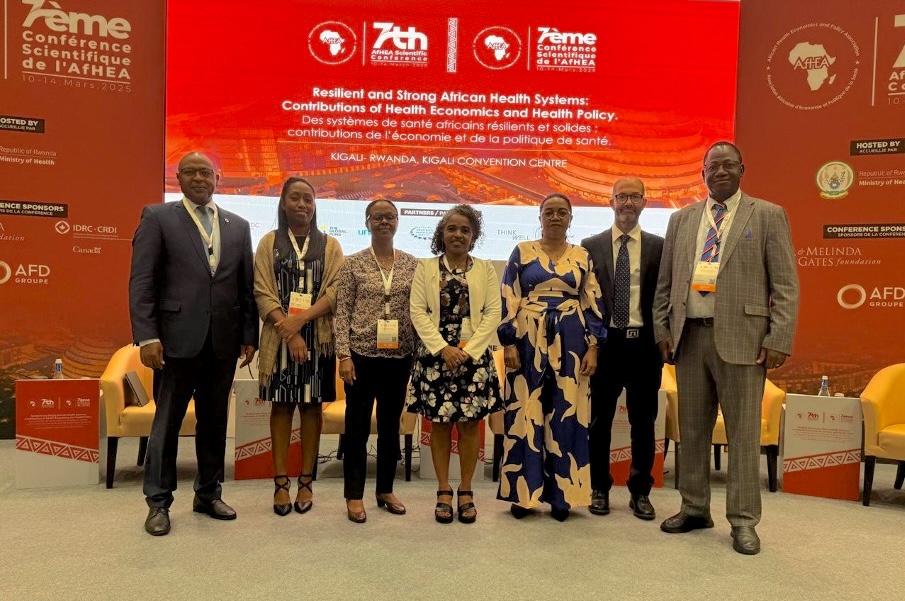The African Association of Health Economics and Policy held its 7th biennial scientific conference from March 10 to 15, 2025 in Kigali, Rwanda. The Malagasy delegation made substantial contributions and benefited from field visits.
The Madagascar team, under the leadership of WR Professor Laurent Musango, led a panel discussion on primary healthcare financing and the promotion of community-based health insurance. Two presentations, one on the present value of human losses associated with COVID-19 and productivity losses likely to be avoided through vaccination against COVID-19 in Madagascar, the other on the implementation of mass drug administration for lymphatic filariasis, including the efficacy and financial savings of integration into an existing polio campaign, were also presented.
Virgile Pace, P4H focal person in Madagascar, spoke about the impact of health financing on health outcomes in the Grande Île. He took stock of the current situation, identifying the main challenges and analyzing the reforms underway. Discussions with participants revealed a number of similarities in the difficulties encountered, particularly with regard to resource mobilization (“crowding out”).
In parallel with the conference, field visits were carried out to gain a better understanding of how community-based mutual health insurance works in Rwanda. Rwanda is, in fact, the only country in the African region and in the LMICs to have virtually achieved universal health coverage thanks to mutual health insurance. Very fruitful exchanges took place at a basic health center, a district hospital, the MoH’s National Health Intelligence Center and the Rwanda Social Security Board. The team learned a great deal from these encounters, in particular the key factors to be taken into account in moving towards CSU through mutual health insurance. Obviously, the Rwandan and Malagasy contexts are profoundly different, and Madagascar ‘s socio-economic and political specificities will have to be taken into account to see which elements can realistically be successfully “imported”. Already, however, we can point to political leadership at the highest level of the State, a genuine political will to protect the population, reflected in budgetary arbitration in favor of mutual health insurance schemes, innovative financing that reflects this prioritization, quality healthcare packages and services that are effectively accessible to all, within reasonable timeframes, at all levels of the healthcare pyramid, the confidence of the population in the system and its players, thanks to strengthened, real, effective governance, and the support of communities.


